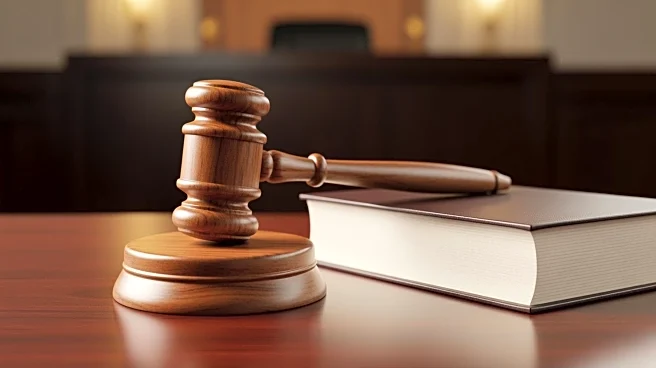What's Happening?
Brazilian President Luiz Inácio Lula da Silva has appointed Jorge Messias, currently serving as Brazil's Solicitor General, to the country's Supreme Court. This marks Lula's third nomination to the Supreme Court during his current term. The appointment
is now pending a Senate vote, which will determine if Messias will fill the seat vacated by former Justice Luís Roberto Barroso, who retired in October. Messias is recognized as a loyal ally of Lula and former President Dilma Rousseff, having worked in various federal government branches before his current role. Justice André Mendonça, appointed by former President Jair Bolsonaro, has expressed support for Messias' nomination, highlighting his qualifications and constitutional compliance.
Why It's Important?
The appointment of Jorge Messias to Brazil's Supreme Court is significant as it reflects President Lula's influence in shaping the judiciary. Messias' confirmation could strengthen Lula's political agenda, given his alignment with Lula's policies. The Supreme Court has been under scrutiny since 2023, following the January 8 riots by Bolsonaro supporters, which led to Bolsonaro's investigation and subsequent trial. The court's decisions, including the sentencing of Bolsonaro, underscore its pivotal role in Brazil's political landscape. Messias' appointment could impact future rulings, especially those related to constitutional and legal matters, affecting Brazil's governance and political stability.
What's Next?
The next step involves the Senate's vote on Jorge Messias' appointment to the Supreme Court. If confirmed, Messias will join the 11-member court, potentially influencing its direction and decisions. The Senate's decision will be closely watched, as it could signal the political dynamics within Brazil's legislative body. Stakeholders, including political leaders and civil society groups, may react to the appointment, considering its implications for Brazil's judicial independence and political balance. The confirmation process will also test the Senate's stance on Lula's judicial nominations and broader political strategy.

















